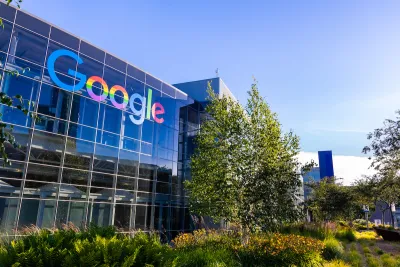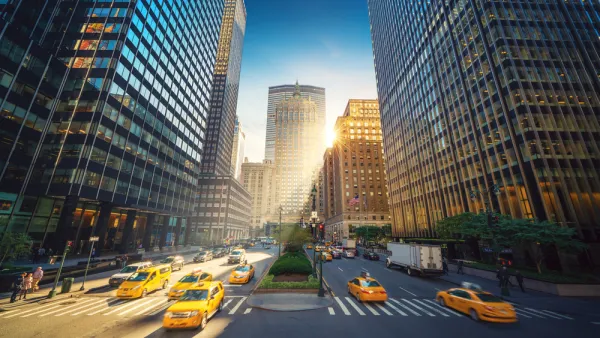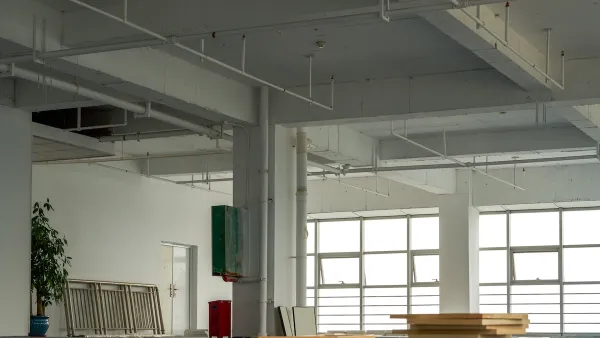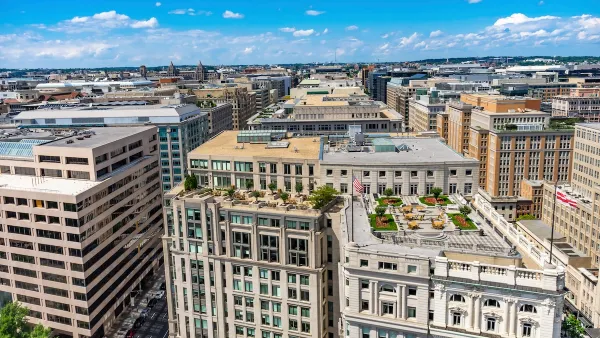The company is moving away from flashy new campuses in favor of converting existing buildings with interesting histories.

For years, tech giants have been building massive, new design-y headquarters, writes Nate Berg in Fast Company. “Increasingly though, Google is going a different route. Instead of solely building modern, amenity-rich campuses, the tech giant is putting more of its now-global real estate dollars into adaptively reusing old, significant, and interesting structures.”
In Los Angeles, an airplane hangar originally built by Howard Hughes for the construction of the Spruce Goose was bought by Google in the 2010s and converted into a 450,000-square-foot office complex. “Another project in Sunnyvale, California, is adapting a more recent piece of historic industrial architecture, turning a 1960s-era research and development facility of one of the first mainframe-computer makers into a 250,000-square-foot office building.”
“All this reuse is an office real estate strategy that makes a lot of sense in the hybrid work era coming out of the pandemic.” As Berg explains, “Bakker says making older buildings more energy efficient plays into Google’s sustainability goals, while also bolstering its environmental, social, and corporate governance (ESG) values. Doing so with very visible buildings and neighborhood projects becomes a form of marketing all on its own.”
FULL STORY: Google’s office strategy used to be new buildings. Now, it’s old warehouses

Analysis: Cybertruck Fatality Rate Far Exceeds That of Ford Pinto
The Tesla Cybertruck was recalled seven times last year.

National Parks Layoffs Will Cause Communities to Lose Billions
Thousands of essential park workers were laid off this week, just before the busy spring break season.

Retro-silient?: America’s First “Eco-burb,” The Woodlands Turns 50
A master-planned community north of Houston offers lessons on green infrastructure and resilient design, but falls short of its founder’s lofty affordability and walkability goals.

Test News Post 1
This is a summary

Analysis: Cybertruck Fatality Rate Far Exceeds That of Ford Pinto
The Tesla Cybertruck was recalled seven times last year.

Test News Headline 46
Test for the image on the front page.
Urban Design for Planners 1: Software Tools
This six-course series explores essential urban design concepts using open source software and equips planners with the tools they need to participate fully in the urban design process.
Planning for Universal Design
Learn the tools for implementing Universal Design in planning regulations.
EMC Planning Group, Inc.
Planetizen
Planetizen
Mpact (formerly Rail~Volution)
Great Falls Development Authority, Inc.
HUDs Office of Policy Development and Research
NYU Wagner Graduate School of Public Service




























